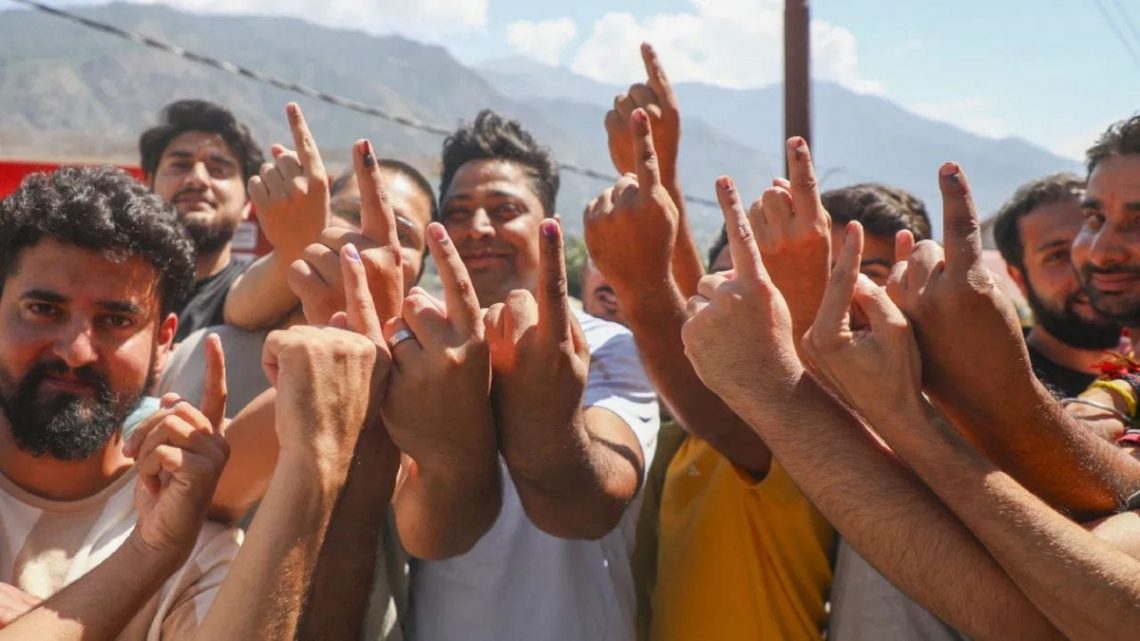The Winter Session of parliament will end on December 20 and with just five sessions left, there has been a curiosity as to when the BJP-led NDA government will table the two Bills related to the One Nation One Election in Lok Sabha.
The introduction of the two Bills – the Constitution (One Hundred and Twenty-Ninth Amendment Bill), 2024, and Union Territories Law (Amendment) Bill, 2024 – were initially included in the list of business for Monday (December 16) in the Lok Sabha. However, they won’t be introduced as they were off the revised list of business for the day.
The government has now reportedly postponed the introduction of Bills which would be the first step towards the implementation of one of BJP’s key poll promises – holding simultaneous elections to the Lok Sabha and Assemblies of states and Union Territories.
It is now expected to be tabled later this week, perhaps Tuesday (December 17), a report by The Indian Express quoted sources as saying.
The Union Cabinet led by Prime Minister Narendra Modi approved the two Bills on Thursday (December 12).
After being introduced, the two Bills will be referred to a joint parliamentary panel for further scrutiny.
Discussion and voting on the supplementary demands for grants for 2024-2025 and the introduction as well as the passing of the appropriation Bills by Finance Minister Nirmala Sitharaman are included in the revised list of business in the Lok Sabha for Monday.
The first Bill, to enable simultaneous elections to Lok Sabha and state assemblies, seeks to insert a new article in the Constitution, Article 82A (simultaneous elections to Lok Sabha and state assemblies), while amending Article 83 (duration of houses of Parliament), Article 172 (duration of state legislatures) and Article 327 (power of Parliament to make provision with respect to elections to legislatures).
The amendments are based on the recommendation of the eight-member High-Level Committee on One Nation One Election chaired by former president Ram Nath Kovind which was accepted by the Union Cabinet in September.
The Bill seeks to amend the Constitution, but it will not require ratification by 50 per cent of state assemblies. It is so because the the elections to Lok Sabha and state assemblies are conducted by the Election Commission of India (ECI) under the Constitution, Representation of People Act, 1950, Representation of People Act, 1951, and rules and orders pursuant to them.
It will, however, need two-thirds of members of House of Parliament to vote in favour of the Bill.
The second Bill, the Union Territories Law (Amendment) Bill, 2024, seeks to make consequential amendments in section 5 of the Government of Union Territories Act, 1963, section 5 of the Government of National Capital Territory of Delhi Act, 1991 and section 17 of the Jammu and Kashmir Reorganisation Act, 2019 to align elections in UTs, Delhi and Jammu and Kashmir respectively with the general election and elections to state legislative assemblies.
This can be passed by a simple majority in both houses of parliament – Lok Sabha and Rajya Sabha.
Considering the Bills being introduced and passed passed during the Union Budget Session in February next year, the earliest the One Nation, One Election’ law will come into effect in 2034.
For it, the Constitution (One Hundred and Twenty-Ninth Amendment Bill), 2024, proposes inserting Article 82A (after Article 82) into the Constitution, the President will be required to issue a notification on the date of the first sitting of the Lok Sabha after a general election, and that date of notification shall be called the appointed date. The tenure of the Lok Sabha shall be five years from that appointed date.
The tenure of all legislative assemblies, constituted by elections held after the appointed date and before the expiry of the full term of the Lok Sabha shall also come to an end on the expiry of the full term of the Lok Sabha.
The five-year period from the date of first meeting of the Lok Sabha shall be referred to as the full term of the Lok Saba. Thereafter, all elections to Lok Sabha and legislative assemblies will be held together simultaneously.
The first sitting of the 18th Lok Sabha took place in June 2024 and its five-year term expires in 2029. It will be only in the first sitting of next Lok Sabha that will be constituted in 2029 that the appointed date will be fixed. And simultaneous Lok Sabha and assembly elections will be held after the end of that five-year term, that is, in 2034.
The need for holding simultaneous elections to Lok Sabha and state assemblies has been necessitated because of the mammoth cost and time involved in conducting the exercise. As per the ECI, the cost of holding simultaneous elections would cost around Rs 4,500 crore.
With inputs from agencies.
Link to article –
One Nation, One Election Bill not on LS business today, likely this week

